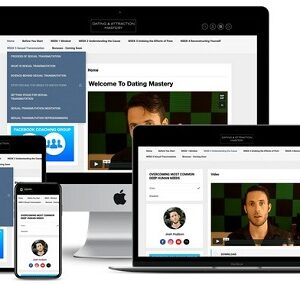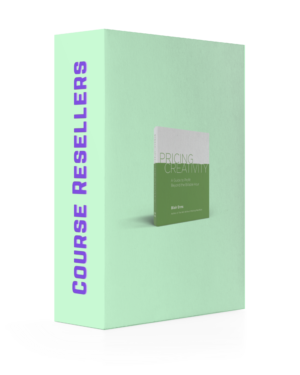Vigilant Leader – Sensing & Probing The External Environment | 3.17 GB
Proof –
![[Image: 2409101202470283.jpg]](https://www.hostpic.org/images/2409101202470283.jpg)
Master the skills to detect weak signals, analyze external environments, and proactively lead through uncertainty.
What you’ll learn
Identify weak signals to anticipate emerging threats and opportunities.
Distinguish weak signals from noise using proven detection techniques.
Build networks and leverage tools for real-time environmental sensing.
Test assumptions through scenario planning and simulations.
Analyze and act on signals to make proactive, strategic decisions.
Requirements
There are no strict prerequisites for taking the *Vigilant Leadership* series, making it accessible to leaders, managers, and aspiring executives at all levels.
**Basic leadership experience:** Familiarity with leading teams or managing projects will allow you to apply the concepts more effectively.
**An understanding of business fundamentals:** Knowledge of basic business operations, strategy, and risk management will help contextualize the course material.
**An interest in proactive leadership:** A willingness to embrace change, anticipate challenges, and drive innovation is essential for maximizing the value of this series.
No specialized tools or equipment are required, just a commitment to improving your leadership skills and the drive to lead your organization with vigilance and foresight.
Description
In today’s rapidly evolving business landscape, successful leaders don’t just react to change-they anticipate it. Course 3: Sensing and Probing the External Environment is designed to equip you with the skills and tools necessary to detect early warning signs, or “weak signals,” that indicate potential risks or opportunities for your organization.This course is part of the Vigilant Leadership series and focuses on helping you build a proactive, future-focused approach to leadership. Throughout this course, you’ll learn how to scan your environment for subtle, yet important, changes. These weak signals could be the difference between staying ahead of industry shifts or being caught off-guard by disruptions.We’ll dive into practical techniques for distinguishing weak signals from the overwhelming noise of daily operations. By learning to filter out distractions and focus on what truly matters, you’ll be able to pinpoint emerging trends and developments before they fully materialize. You’ll explore methods such as environmental scanning, network-building for external sensing, and leveraging real-time insights from social media, customer feedback, and competitive intelligence.The course also covers how to test and challenge assumptions through scenario planning, war-gaming exercises, and simulations, helping you prepare for a range of future outcomes. By learning to probe deeper into the assumptions behind weak signals, you’ll sharpen your strategic thinking and improve your decision-making abilities.Finally, we’ll guide you through the process of interpreting weak signals and taking decisive action. You’ll learn how to prioritize emerging trends, allocate resources effectively, and lead your organization through uncertainty with confidence and clarity.By the end of this course, you’ll have a comprehensive toolkit to sense, analyze, and act on external signals, making you a more vigilant and proactive leader. If you’re ready to take your leadership to the next level and stay ahead of the curve in a fast-changing world, this course is for you.Enroll today and start mastering the art of proactive leadership with Sensing and Probing the External Environment!
Overview
Section 1: Introduction
Lecture 1 Introduction
Lecture 2 About Series in Vigilant Leadership
Lecture 3 Vigilant Leader Promo – Sensing and Probing the External Environment
Section 2: Segment 3.1: Understanding Weak Signals
Lecture 4 Part 1: What are Weak Signals and Why They Matter
Lecture 5 Part 2: Distinguishing Weak Signals from Noise
Lecture 6 Part 3: Techniques for Detecting Weak Signals Early
Lecture 7 Part 4: Case Studies of Weak Signals Leading to Major Disruptions
Section 3: Segment 3.2: Sensing the External Environment
Lecture 8 Part 1: Building Networks for External Sensing
Lecture 9 Part 2: Leveraging Social Media and Online Platforms for Real-Time Insights
Lecture 10 Part 3: Using Customer Feedback and Market Research
Lecture 11 Part 4: The Role of Competitive Intelligence
Lecture 12 Conclusion: Enhancing Your Sensing Capabilities in the External Environment
Section 4: Segment 3.3: Probing and Testing Assumptions
Lecture 13 Part 1: Methods for Testing Assumptions and Hypotheses
Lecture 14 Part 2: Scenario Planning and War-Gaming Exercises
Lecture 15 Part 3: Utilizing Simulations and Prototypes
Lecture 16 Part 4: Learning from Failures and Near-Misses
Section 5: Segment 3.4: Interpreting and Acting on Signals
Lecture 17 Part 1: Analyzing Weak Signals to Identify Potential Threats
Lecture 18 Part 2: Prioritizing Signals and Allocating Resources
Lecture 19 Part 3: Strategies for Timely and Decisive Action
Lecture 20 Part 4: Building an Agile Response Framework
Section 6: Conclusion
Lecture 21 Conclusion: Completing the Course on Sensing & Probing the External Environment
**Experienced Leaders:** Managers, directors, and executives who want to sharpen their leadership skills by learning how to anticipate challenges and make proactive, informed decisions in a rapidly changing environment.,**Aspiring Leaders:** Professionals aiming for leadership roles who want to develop the strategic foresight and decision-making capabilities necessary to lead teams and organizations with confidence.,HR Professionals:** Individuals responsible for developing leadership programs within their organizations who seek to foster a culture of vigilance and empower teams to identify and respond to emerging threats.,**Entrepreneurs and Business Owners:** Those who want to enhance their ability to navigate uncertainty, drive innovation, and build resilient, future-ready businesses.,**Who is it not suitable for?** – **Complete Beginners:** This series assumes a foundational understanding of business and leadership principles. Those new to leadership may benefit from starting with more basic leadership courses before diving into this series.





